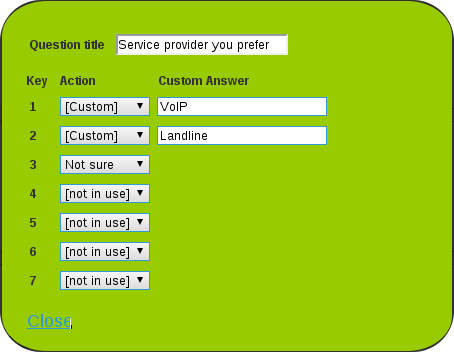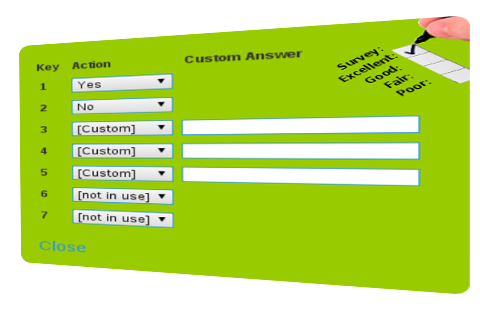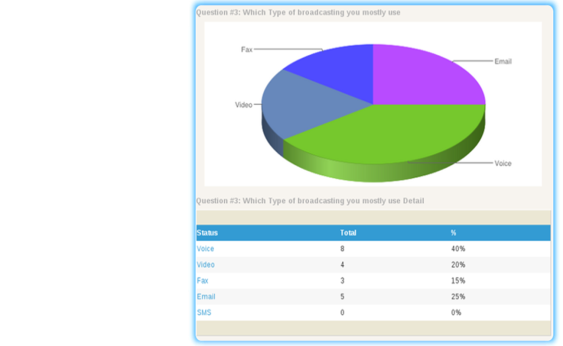Introduction:
Amidst a competitive business environment, customer experience plays a vital role in achieving success and retaining loyal customers. To meet evolving expectations, businesses seek feedback to enhance their offerings. Inbound phone surveys have emerged as a valuable tool for improving customer experience. By directly engaging customers, businesses gain insights, identify pain points, and make data-driven improvements. This article delves into the concept of inbound phone surveys and their significance in elevating the overall customer experience.
Section 1: Understanding Inbound Phone Surveys
1.1 What are Inbound Phone Surveys?
Inbound phone surveys are a customer feedback collection method that involves initiating phone calls to gain valuable insights into their experiences. Unlike outbound surveys, where businesses contact customers, inbound phone surveys are triggered by customers themselves, typically after interacting with a product or service. This approach allows for gathering timely feedback while the customer’s experience is still vivid in their memory, providing an opportunity to capture valuable insights.
1.2 Benefits of Inbound Phone Surveys
Inbound phone surveys offer several benefits that contribute to enhancing the customer experience:
1.2.1 Personalized Interaction:
Inbound phone surveys enable personalized and direct communication with customers, fostering a sense of importance and making them feel valued. Unlike automated online surveys or emails, phone surveys offer a human touch, allowing customers to express their thoughts and feelings more effectively. This personal interaction enhances the quality of feedback and provides businesses with deeper insights into customer experiences and sentiments.

1.2.2 Real-Time Feedback:
By reaching customers immediately after their interaction, businesses can capture real-time feedback, enabling them to address issues promptly and improve customer satisfaction. This immediacy enhances the accuracy and relevance of the feedback received.
1.2.3 Detailed Insights:
Incorporating phone conversations in surveys enables businesses to gather detailed and nuanced feedback, surpassing other survey methods and yielding valuable insights into customer preferences, pain points, and expectations. The interactive nature of phone surveys facilitates in-depth discussions, uncovering valuable insights that can guide informed business decisions. By diving more profound into client points of view, businesses pick up a comprehensive understanding of their target group of onlookers and can tailor their techniques to meet their needs successfully.
1.2.4 Higher Response Rates:
Inbound phone studies frequently result in higher reaction rates compared to other study strategies, as clients are more likely to lock in in a discussion instead of react to an mail or online frame. This higher reaction rate guarantees a more agent test and permits businesses to assemble a broader extend of criticism.
Section 2: Implementing Inbound Phone Surveys
2.1 Designing Effective Survey Questions
The plan of overview questions plays a pivotal part in gathering important and noteworthy input. When planning inbound phone overviews, consider the taking after components:
2.1.1 Open-ended Questions:
Consolidating open-ended questions permits clients to supply nitty gritty criticism, sharing their encounters and suggestions more openly. These questions energize clients to precise their contemplations, permitting businesses to pick up more profound bits of knowledge into their inclinations, torment focuses, and zones for change.

2.1.2 Rating Scales:
Counting rating scales empowers businesses to degree client fulfillment and recognize regions for change based on client appraisals. These scales give quantifiable information that can be analyzed and compared over diverse clients or time periods.
2.1.3 Demographic Questions:
Gathering statistic data makes a difference businesses fragment their client input and tailor their items and administrations to particular target gatherings of people. By understanding the socioeconomics of clients who give input, businesses can recognize designs and make more educated choices with respect to client inclinations and needs.
2.2 Training and Empowering Survey Agents
The victory of inbound phone overviews depends on the abilities and capacities of the study operators who lock in with clients. Training and empowering survey agents are essential steps in implementing effective phone surveys:
2.2.1 Effective Communication Skills:
Survey agents need to be trained in active listening, empathy, and effective communication to engage customers in meaningful conversations and extract valuable insights. They should be able to navigate conversations smoothly, ask follow-up questions, and make customers feel comfortable sharing their experiences.
2.2.2 Product and Service Knowledge:
2.3 Ensuring Data Privacy and Compliance
Keeping up client believe and securing their protection is of most extreme significance when conducting inbound phone surveys. To guarantee information protection and compliance, businesses ought to consider the taking after:
2.3.1 Data Protection:
Businesses must prioritize information protection and guarantee that client data is taken care of safely and in compliance with important directions, such as GDPR or CCPA. Executing strong information assurance measures, such as encryption and secure capacity, makes a difference keep up client privacy and builds believe.
2.3.2 Consent and Opt-Out Options:
Customers should be informed about the purpose of the survey, their rights regarding data usage, and provided with the option to opt-out if they do not wish to participate. Obtaining explicit consent from customers before collecting their feedback ensures transparency and respects their privacy choices.
Section 3: Leveraging Inbound Phone Surveys for Enhanced Customer Experience:
3.1 Prompt Issue Resolution
By reaching out to customers through inbound phone surveys, businesses can promptly address any issues or concerns raised, demonstrating a commitment to customer satisfaction. Resolving problems in a timely manner not only enhances the customer experience but also prevents negative word-of-mouth and potential customer churn.
3.2 Product and Service Improvement
Inbound phone surveys give a riches of information and experiences that can be utilized to distinguish ranges for advancement in items and administrations. By understanding client torment focuses and inclinations, businesses can make data-driven choices, refine their offerings, and provide a more custom-made and fulfilling client encounter. The criticism assembled from phone surveys serves as a profitable asset for ceaseless change and advancement.

3.3 Personalized Customer Engagement
Engaging customers through inbound phone surveys allows businesses to personalize their intuitive and appear veritable care for their clients. By effectively tuning in to their input and tending to their concerns, businesses can construct more grounded connections, cultivate devotion, and separate themselves from competitors. This personalized approach to client engagement makes a difference make positive encounters and cultivates long-term client connections.
Conclusion:
Inbound phone surveys offer a capable device for improving customer experience by giving personalized and opportune input. By actualizing successful survey procedures, preparing survey agents, and guaranteeing information security, businesses can use inbound phone surveys to pick up profitable bits of knowledge, expeditiously address client issues, and move forward their items and administrations. In an period where client fulfillment is fundamental, businesses that prioritize the client involvement through inbound phone studies will stand out and flourish within the competitive showcase.
Leveraging Open Source in ICT